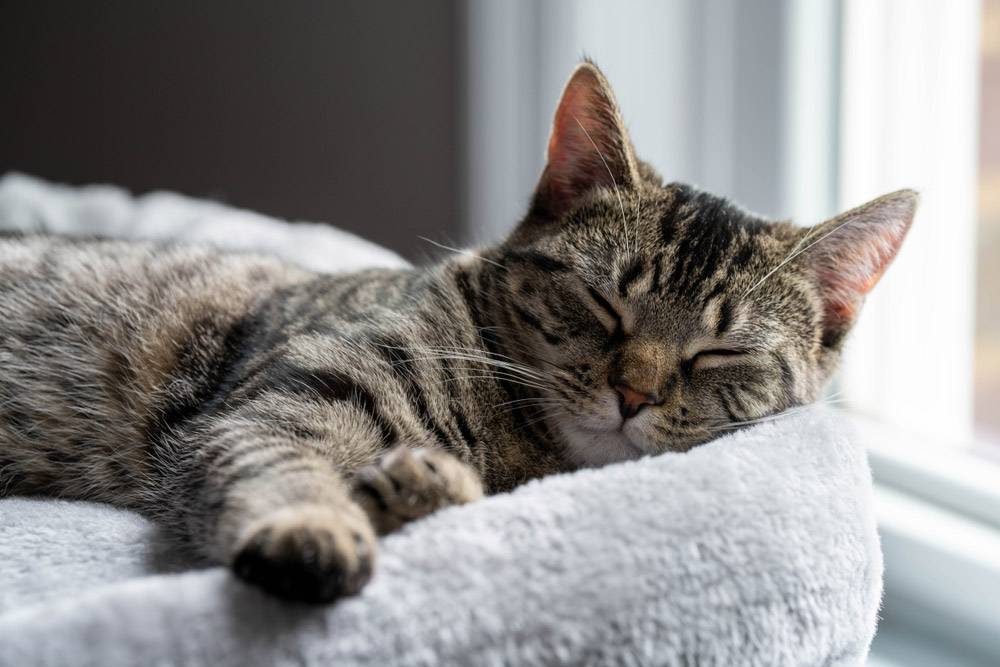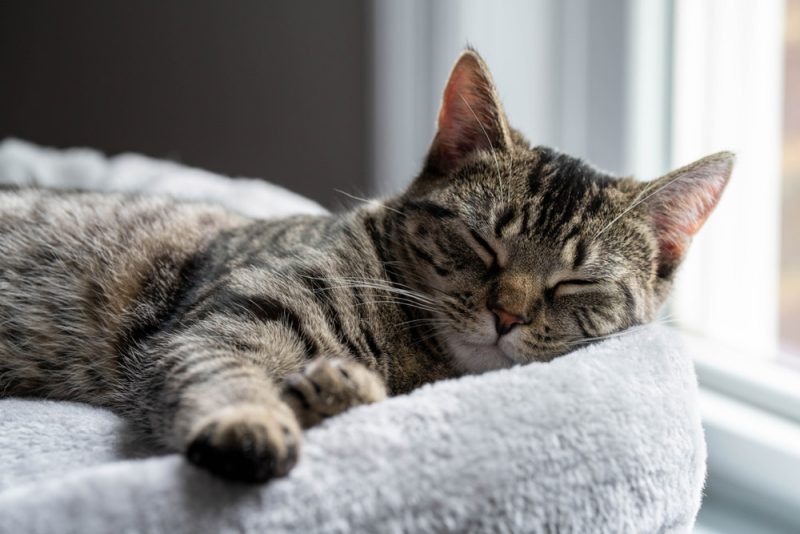Click to Skip Ahead
Cats have long captured the imagination of humans with their strange behaviors and elusive nature. From their graceful agility to their quirky expressions, these beloved feline companions have fascinated pet owners and enthusiasts for centuries.
However, one peculiar aspect that continues to pique curiosity is whether these seemingly aloof creatures hibernate during the cold winter months. In truth, while cats do experience changes in the colder seasons, they do not hibernate.
Expounding on this answer, we take a look at their evolutionary history and understand their instinctual behaviors!
Hibernation Explained
Hibernation is a biological phenomenon exhibited by certain animals, typically in response to adverse environmental conditions such as extreme cold or scarcity of food. During hibernation, these animals enter a state of dormancy, significantly reducing their metabolic rate, body temperature, and activity levels.
This energy-saving strategy allows them to endure harsh conditions, conserve their limited resources, and survive through periods when it’s difficult to find sustenance. While hibernation varies across species, the core principle remains the same: a temporary, energy-efficient “sleep” that helps animals endure the most challenging seasons and emerge relatively unscathed when conditions improve.
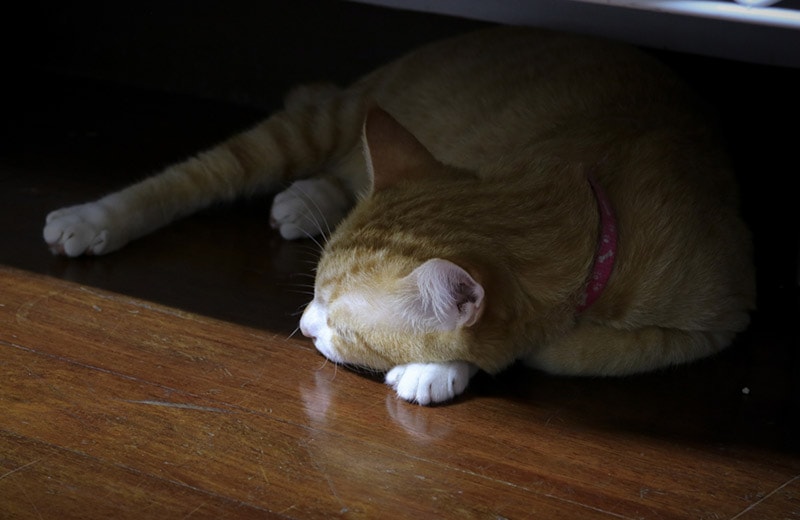
Cats’ Typical Sleeping Habits
While cats do not hibernate, they are known for their exceptional sleeping habits. On average, a healthy adult cat spends about 12 to 16 hours a day in slumber, with some senior cats reaching an astonishing 20 hours of sleep.
These feline siestas are typically distributed throughout the day and night, with cats being crepuscular, which means they are most active during dawn and dusk.
Cats are also light sleepers, capable of quick arousal, which stems from their ancestral hunting instincts. This allows them to be alert to potential threats or opportunities for hunting even while they rest. While the specifics of a cat’s sleep pattern may vary based on age, health, and individual temperament, their sleeping habits remain a charming and essential aspect of their nature.
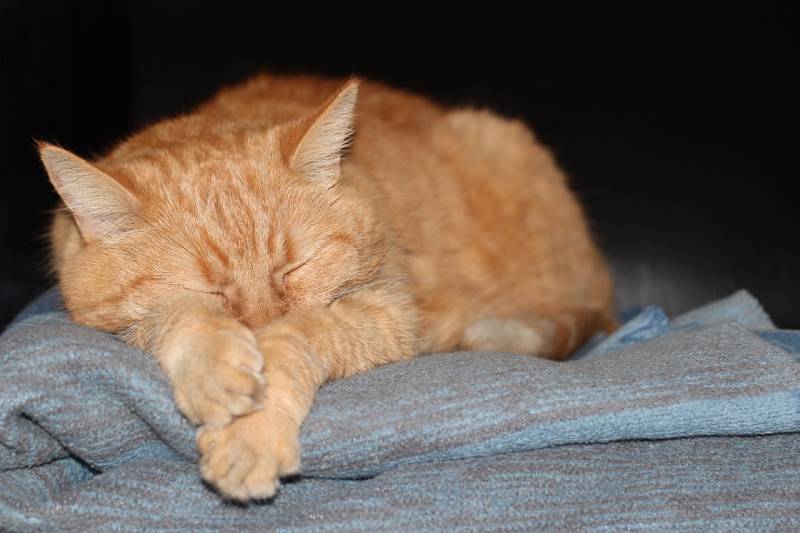
Why Do Cats Sleep So Much?
Cats sleep so much primarily because of their evolutionary heritage as skilled predators. This extensive slumber not only conserves energy but also supports their unique hunting behavior. Cats are crepuscular hunters, and their prey is often most active during dawn and dusk.
By resting for a significant portion of the day, cats can be well-rested and fully alert during the key hunting times. Additionally, deep sleep plays a crucial role in muscle and tissue repair, ensuring that a cat’s body is in prime condition for those bursts of intense activity during their hunting pursuits.
The abundant sleep also helps cats process and store information from their environment and experiences, contributing to their adaptability and survival skills.
How Do the Colder Seasons Affect Cats?
The colder seasons can significantly affect cats in various ways. One of the most notable effects is their natural tendency to seek warmth and shelter to stay comfortable. Cats may develop a preference for cozy spots, sunlight, or snuggling to keep warm.
Their physical activity levels may also decrease as cold weather can deter outdoor exploration and play, especially if the outside gets extremely cold. Additionally, as the sunlight hours shorten during the fall, cats will shed their summer fur and get a thicker winter coat to protect them during the colder months.
Some cats may also experience seasonal fluctuations in appetite, while others may be more prone to weight gain due to reduced activity. Overall, cats tend to adapt to the cold by conserving energy, seeking warmth, and adjusting their behaviors to stay comfortable and safe during the colder seasons.
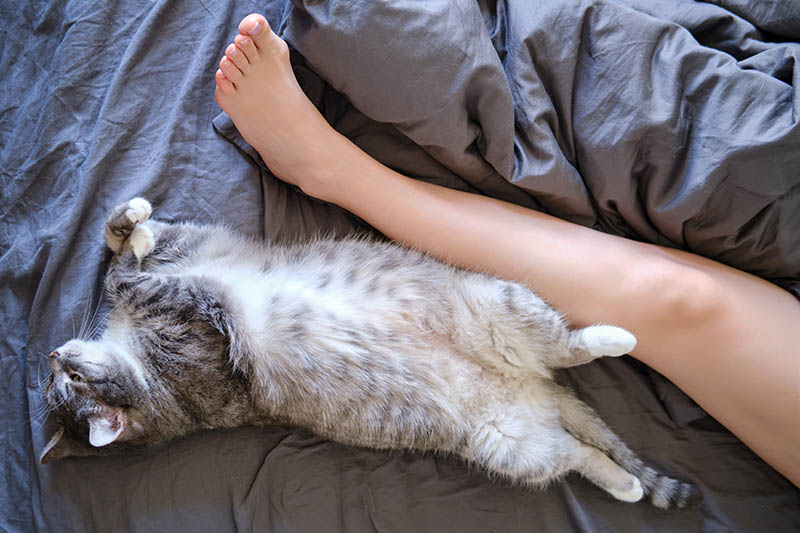
Cats’ Sleeping Habits During the Winter
During the winter, cats often adapt their sleeping habits to the colder and darker conditions. Much like in other seasons, cats will still sleep for a significant portion of the day.
However, the lower temperatures and reduced daylight can lead them to seek out warmer and cozier spots for their slumber. You may notice your cat favoring sunny patches of sunlight or snuggling into blankets, cozy corners, or even with their human companions to stay warm.
Cats may also sleep longer during the winter, as the extended darkness can trigger their instinct to conserve energy. This increased sleep can help them stay warm and reduce the need for frequent movement, especially if you live in very cold areas that get snowy, as their outdoor activities are usually curtailed due to the cold weather. So, while their overall sleep patterns may remain consistent, you’ll likely observe a preference for warmer and more sheltered spots during the winter months.
Cats in the Wild
In the wild, the sleeping habits of cats, such as lions and tigers, are intricately linked to their roles as apex predators. These large felids are typically nocturnal hunters, with their hunting activities peaking during the night. Similar to their domestic counterparts, they also do not hibernate.
Consequently, their sleeping patterns during the day involve long and deep slumbers to conserve energy after expending significant effort on hunting and consuming prey.
In the wild, cats will often seek out secluded and hidden spots where they can rest undisturbed and protect themselves from potential threats. These behaviors are essential for maintaining their physical and mental readiness for hunting, as well as ensuring their survival in the challenging and competitive environments of the wild.

Cat Care Tips During the Colder Seasons
During the colder seasons, it’s crucial to provide extra care for your cat to ensure their comfort and well-being.
First and foremost, create a warm and cozy environment inside your home by offering soft bedding, blankets, or heated cat beds for your feline friend to snuggle in. Ensure they have access to sunny spots, as cats love basking in sunlight for warmth.
Keep your cat’s living space draft-free and sheltered from the cold. You may also consider adjusting their diet to accommodate potential changes in activity levels during the winter. Make sure your cat has access to fresh water, as indoor heating can dry the air, and they might need more hydration.
Regular grooming can help maintain their coat’s insulating properties and prevent skin issues caused by dry indoor air. You might also want to consider adding a humidifier.
Lastly, if your cat goes outdoors, monitor their time outside, as extreme cold can be dangerous, and provide a warm and secure shelter. Please ensure your cat has free access to your home at all times so they can return to warm up as needed. These measures will help keep your cat safe, comfortable, and healthy during the colder months.
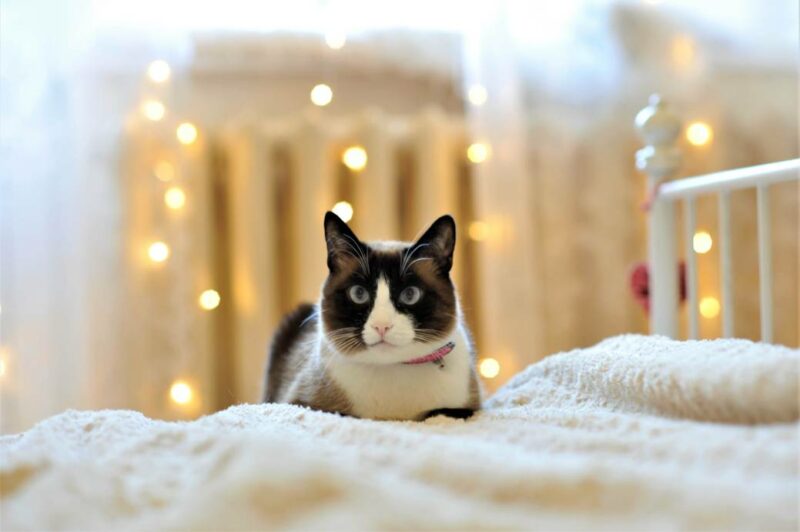
Final Thoughts
While cats do not hibernate, it is essential to understand your cat’s behaviors, whether it be their propensity for sleep, adaptation to colder seasons, or need for warmth and comfort.
Cats’ unique characteristics and instincts make them remarkably adaptable creatures, capable of thriving in various environments. By being attuned to their needs and providing a caring and nurturing home, we can ensure that our feline companions lead happy, healthy lives year-round, regardless of the challenges posed by changing seasons!
See also:
Featured Image Credit: Alex Di Stasi, Shutterstock

